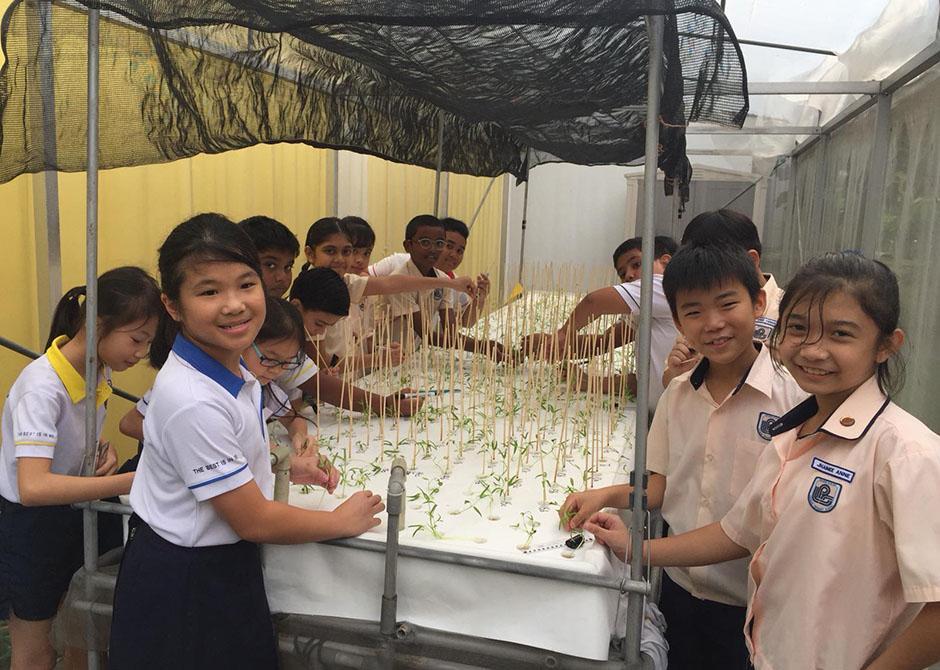A garden bursting with vegetables, colourful student-authored books on food waste, and handcrafted seed paper bookmarks – these creative initiatives from our schools demonstrate that environmental education can be both rewarding and engaging.
Schoolbag explores how schools are weaving sustainability into everyday learning, inspiring students to become environmentally conscious citizens through hands-on experiences.
At Fengshan Primary School, students create paper that blooms
For students at Fengshan Primary School’s Environmental Science Club, paper recycling takes on a cool twist as they learn to make paper that can later sprout into plants.
The process begins with collection. Students gather old, used papers from various points around the school including the General Office, Staff room (with teachers’ assistance), recycling bins, and directly from their peers.
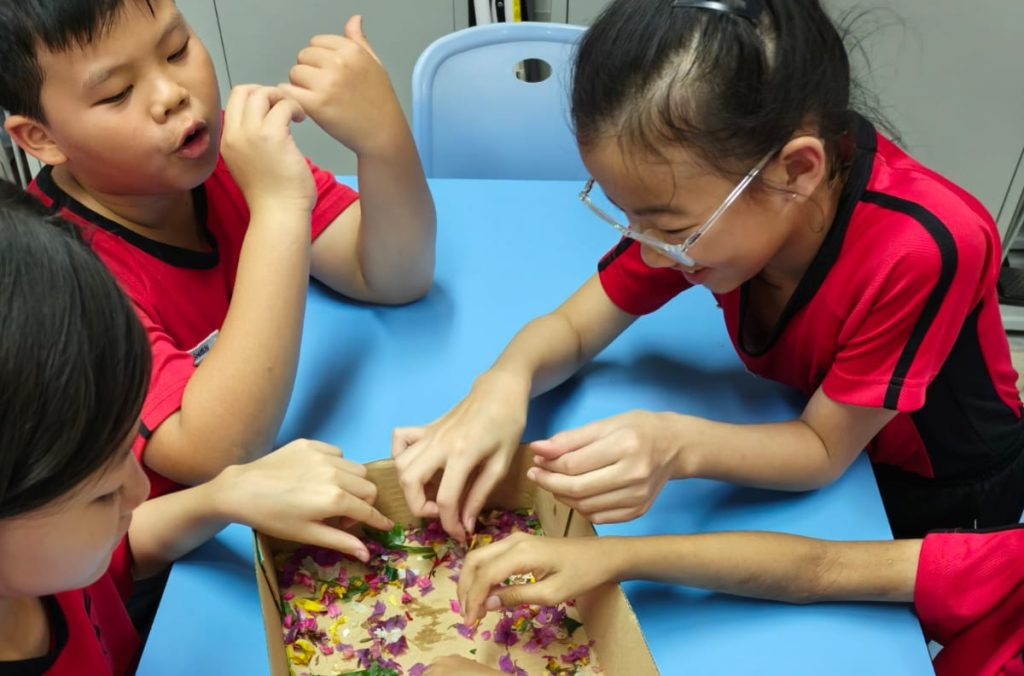
“We shred these papers before turning them into pulp by blending the paper with water,” explains Primary 5 student Ishaan Kaustubh. “Then we collect fallen leaves and flowers from the school’s garden, tear them into small pieces, and mix them with seeds and water.”
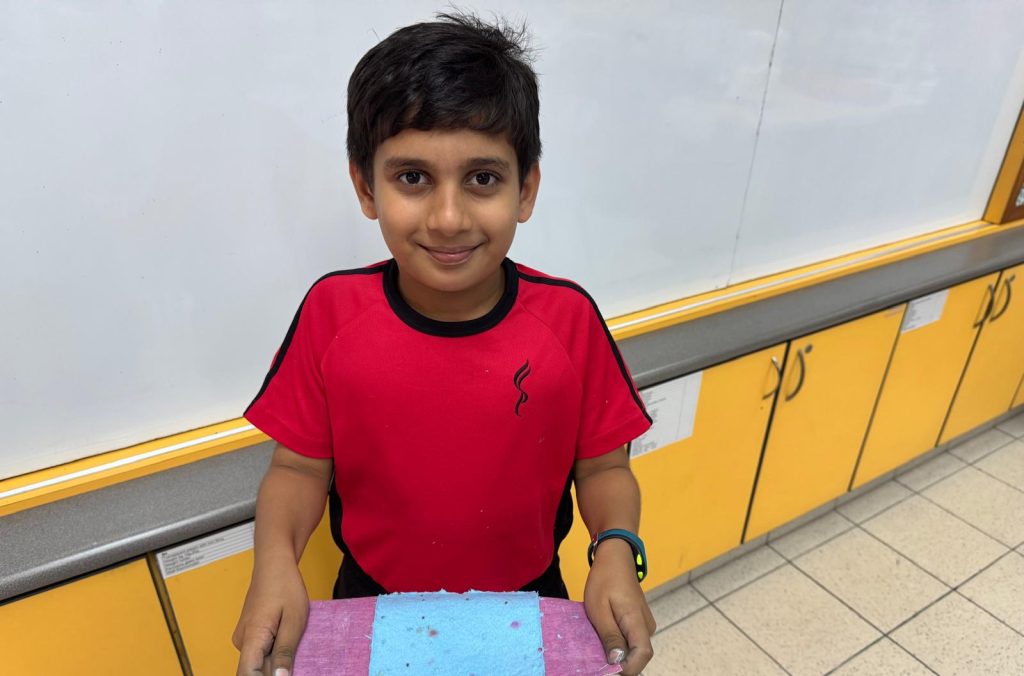
Using specialised seed paper moulds, students then sieve the mixture into shape. Once moulding is complete, they use a sponge to absorb the excess water by pressing each mould against a dry cloth, where it’s left to dry.
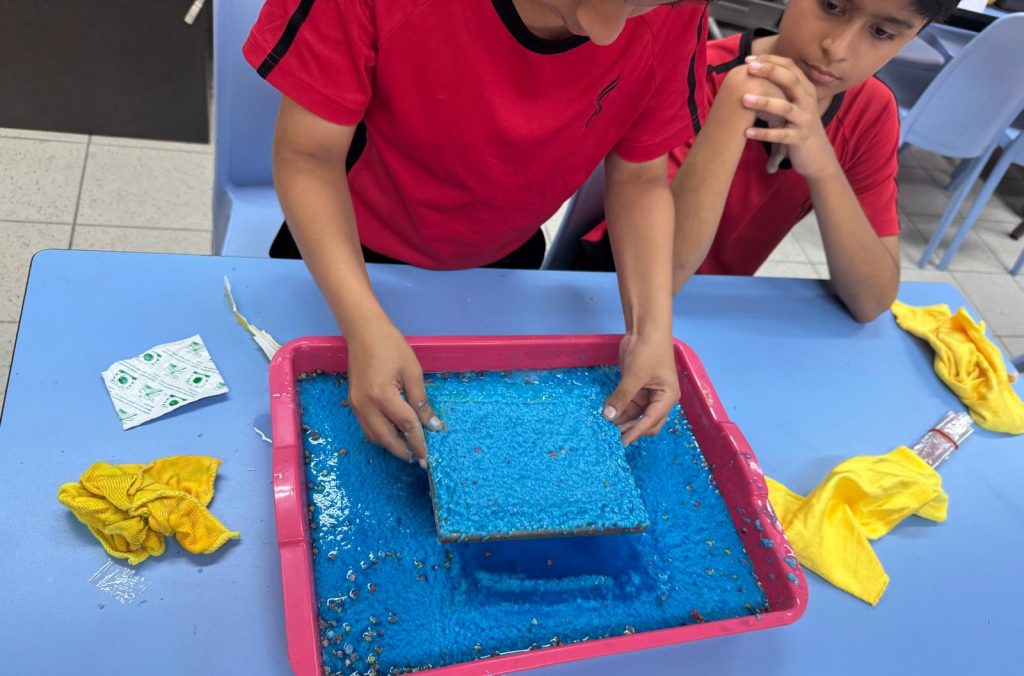
“It’s fun and rewarding to see their products used in multiple ways, however they want it. From a card to a bookmark, then, to a plant! Some students have planted their seed paper at home and sent in photos of little sprouts popping out,” says Ms Xu Fang Ling, teacher-in-charge of the CCA.
So far, the students have made over 300 sheets of seed paper. “The goal is to keep going until every student in the school gets to make and plant their own, eventually reaching out to the community,” she says.
She adds that there are plans to use the seed paper for both English Week poetry projects in April to coincide with Earth Day and as material for students to create decorative Teachers’ Day cards.
At Crest Secondary School, students master farm-to-table skills
“If we ever run out of vegetables, I can grow my own,” says Timothy Foo Toon Fu, a Culinary and Restaurant Operations student at Crest Secondary School. Once uncertain about his ability to keep a plant alive, he now confidently transplants delicate seedlings from their nursery trays into larger pots or bed with nutrient-rich soil.
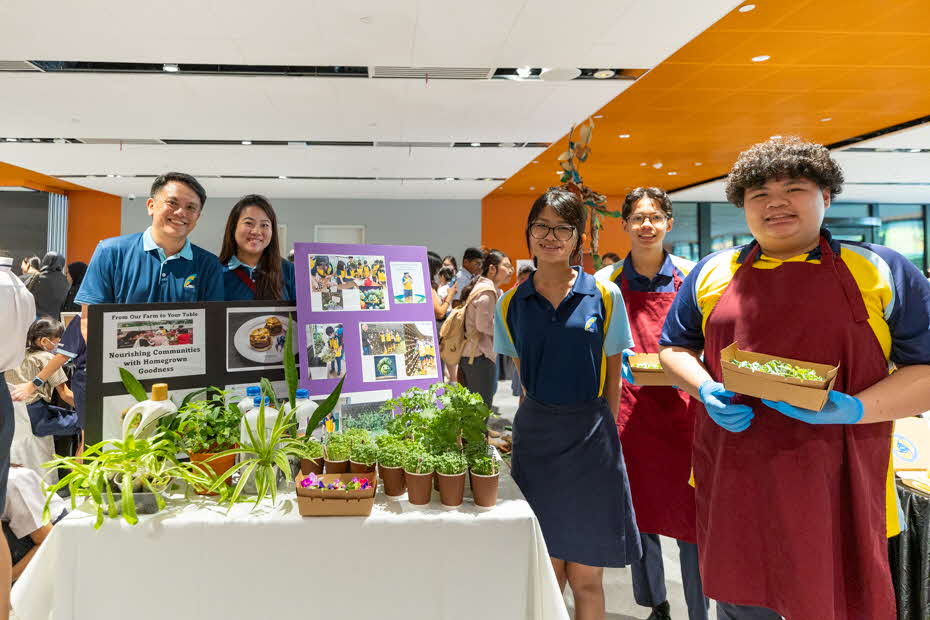
His newfound confidence in farming comes from the school’s “From Our Farm to Your Table” programme, where students practice eco-friendly pest control. They regularly inspect plants, remove pests manually, and prune affected plant parts. This chemical-free method teaches students sustainable gardening while developing their observational skills and environmental awareness.
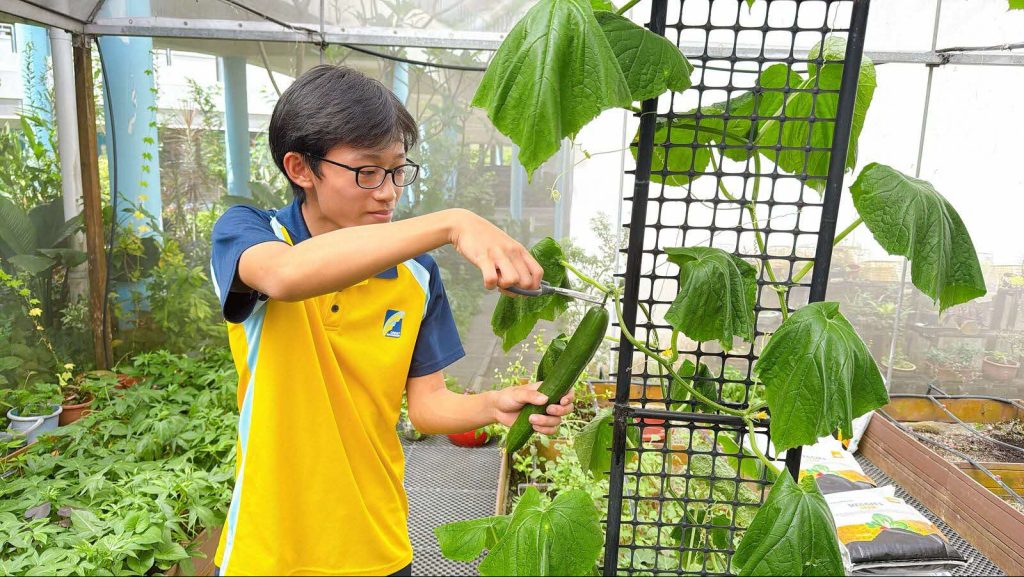
In the garden, students cultivate different varieties of vegetables and herbs year-round. Kang kong, sweet potato leaves, kale, mint, thai basil and laksa leaves thrive under their care. Some of these vegetables are used in dishes like kale pesto pasta and laksa eggs benedict during culinary classes.
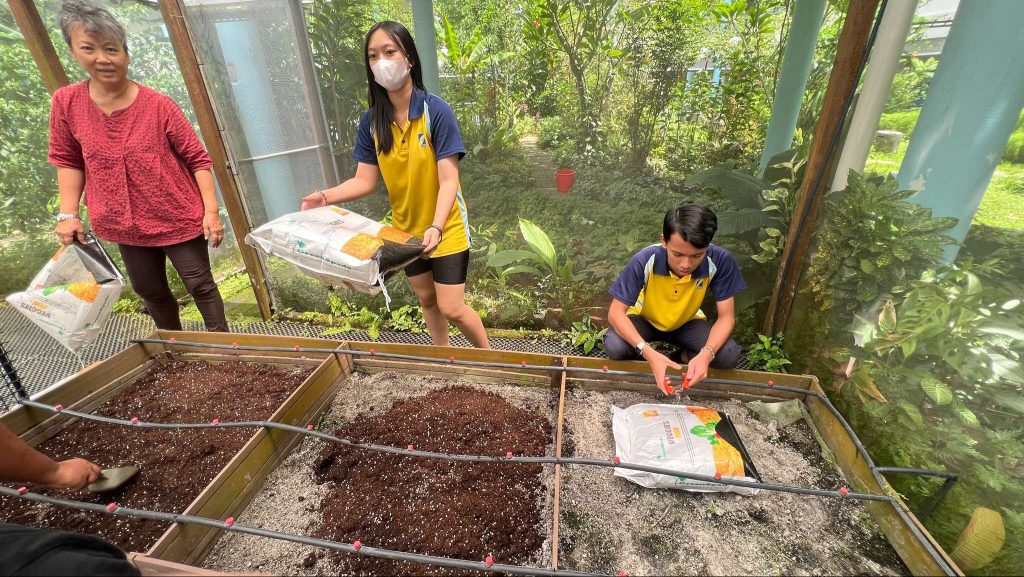
Mr Ooi, Subject Head of Science and Environmental Education, notes that with optimal conditions, they harvest approximately 50kg (a conservative estimation) of vegetables annually. However, he emphasises that it’s not the quantity that matters, but the lessons learnt.
He cites an incident when the garden was once infested with aphids. With the help of the school gardener, Auntie May, students divided into teams, each focusing on a specific task. One group carefully wiped the aphids off plants using damp cloths. Another cut off heavily infested parts with scissors, disposing of the cuttings in sealed bags. A third group prepared a chemical-free neem oil solution and sprayed it on the plants. Throughout the process, students rotated within these roles, learning each step of the process.
By facing issues like the above example, students gain insights into real-world challenges of agriculture like unpredictable weather and pest invasions, empathy for farmers, and the importance of sustainable practices. “Students get more than just botanical lessons; they get life lessons in problem-solving and resilience,” says Mr Ooi.
At Punggol Cove Primary School, a student-led food rescue manual tackles food waste
When the Project E.C.O members from Punggol Cove Primary School observed that their peers and younger family members throwing away food, especially vegetables, during mealtimes, they channelled their concern into creative action. The result? A book to show how leftover food can have a second chance.
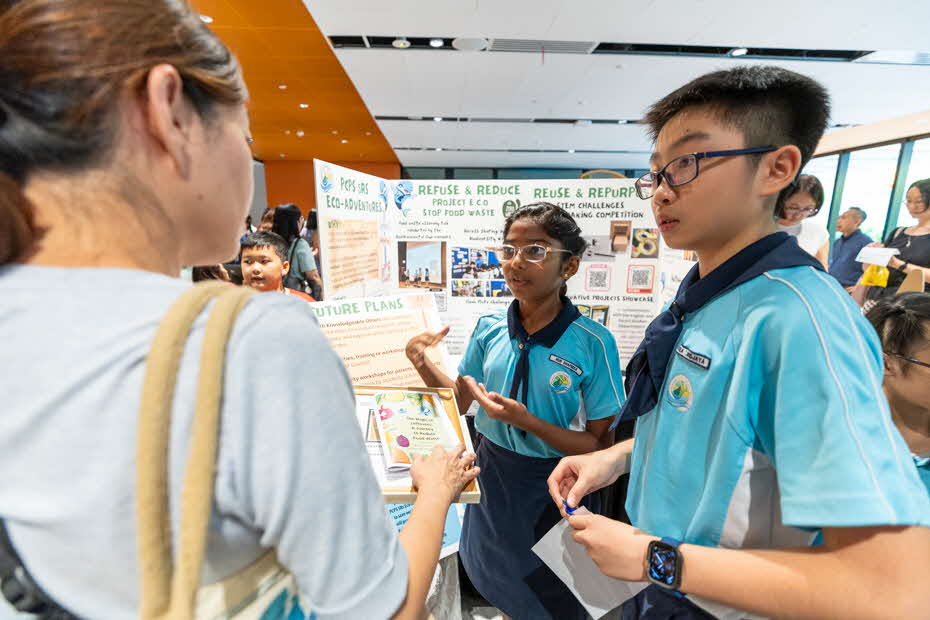
Their heartfelt creation, “The Magic of Leftovers: A Journey to Reduce Food Waste”, brims with practical tips and colourful illustrations crafted by teachers and students using online graphic design platform Canva.
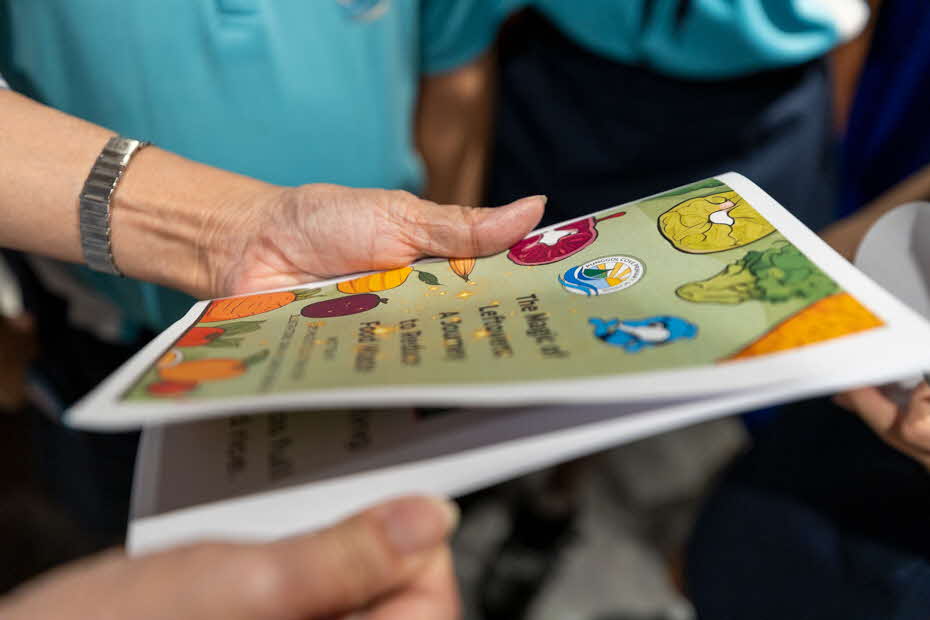
“The hardest part of making the book was deciding how much information about food waste should be included,” shares Primary 5 student Nur Shafeeka.
Rising to the occasion, Shafeeka and her teammates imagined themselves as both young and adult readers. They then carefully selected wide-ranging content that would resonate across age groups, including food waste’s environmental impact, creative leftover recipes, and easy composting methods. Additionally, their use of comic-style speech bubbles within the book delivers complex concepts in a more engaging and digestible way, making their message appealing to readers of all ages.
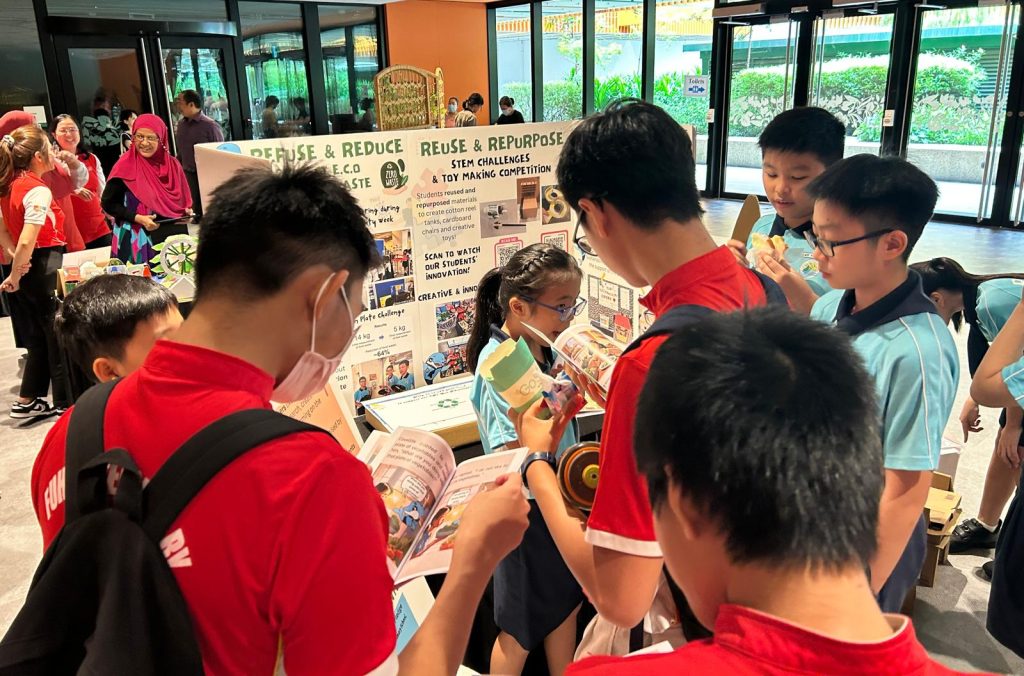
The young changemakers aren’t stopping there. “We want to share the book with students in other schools who can then read our book to their schoolmates,” she enthuses.




